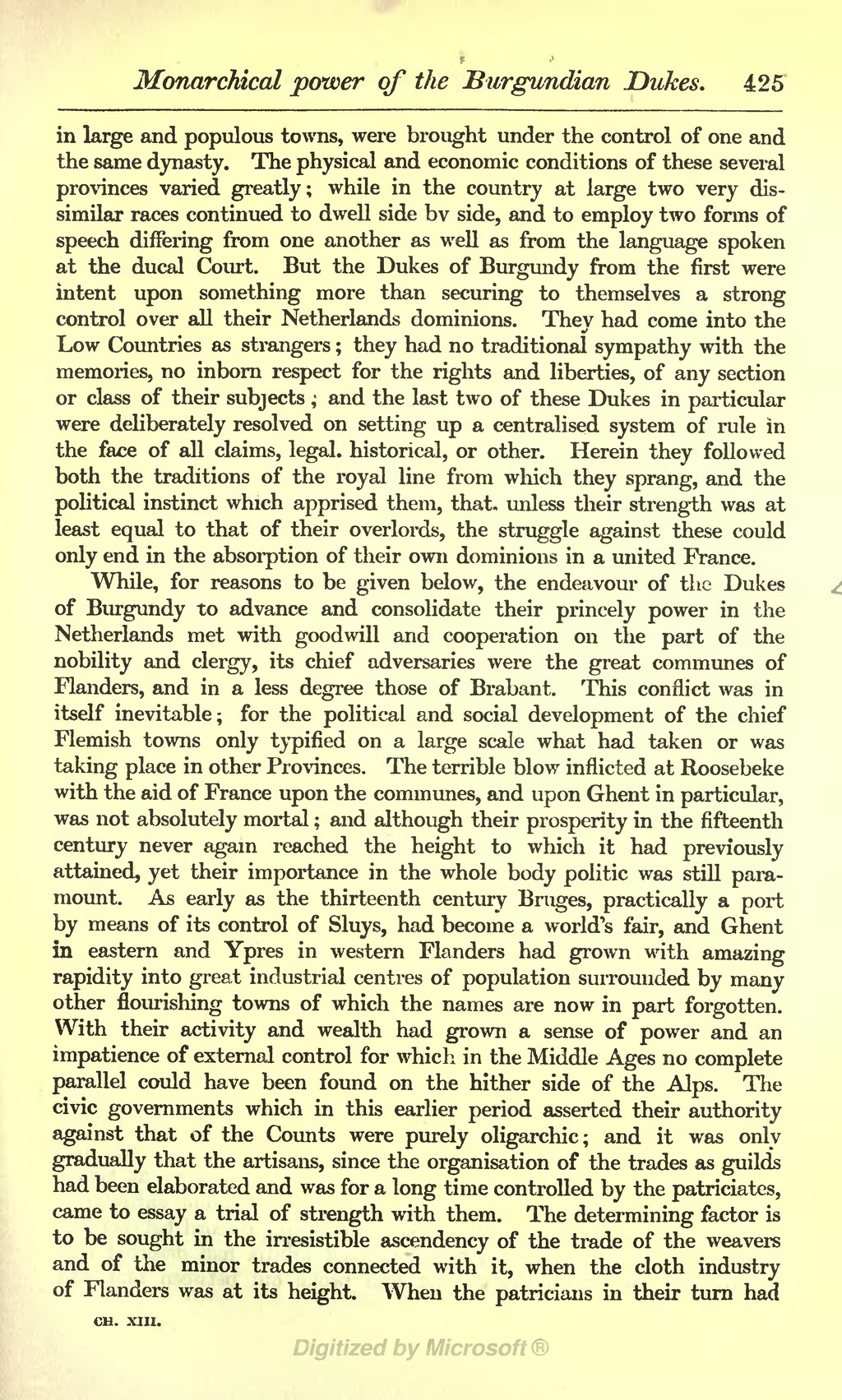in large and populous towns, were brought under the control of one and the same dynasty. The physical and economic conditions of these several provinces varied greatly; while in the country at large two very dissimilar races continued to dwell side by side, and to employ two forms of speech differing from one another as well as from the language spoken at the ducal Court. But the Dukes of Burgundy from the first were intent upon something more than securing to themselves a strong control over all their Netherlands dominions. They had come into the Low Countries as strangers; they had no traditional sympathy with the memories, no inborn respect for the rights and liberties, of any section or class of their subjects; and the last two of these Dukes in particular were deliberately resolved on setting up a centralised system of rule in the face of all claims, legal, historical, or other. Herein they followed both the traditions of the royal line from which they sprang, and the political instinct which apprised them, that, unless their strength was at least equal to that of their overlords, the struggle against these could only end in the absorption of their own dominions in a united France.
While, for reasons to be given below, the endeavour of the Dukes of Burgundy to advance and consolidate their princely power in the Netherlands met with goodwill and cooperation on the part of the nobility and clergy, its chief adversaries were the great communes of Flanders, and in a less degree those of Brabant. This conflict was in itself inevitable; for the political and social development of the chief Flemish towns only typified on a large scale what had taken or was taking place in other Provinces. The terrible blow inflicted at Roosebeke with the aid of France upon the communes, and upon Ghent in particular, was not absolutely mortal; and although their prosperity in the fifteenth century never again reached the height to which it had previously attained, yet their importance in the whole body politic was still paramount. As early as the thirteenth century Bruges, practically a port by means of its control of Sluys, had become a world's fair, and Ghent in Eastern and Ypres in Western Flanders had grown with amazing rapidity into great industrial centres of population surrounded by many other flourishing towns of which the names are now in part forgotten. With their activity and wealth had grown a sense of power and an impatience of external control for which in the Middle Ages no complete parallel could have been found on the hither side of the Alps. The civic governments which in this earlier period asserted their authority against that of the Counts were purely oligarchic; and it was only gradually that the artisans, since the organisation of the trades as guilds had been elaborated and was for a long time controlled by the patriciates, came to essay a trial of strength with them. The determining factor is to be sought in the irresistible ascendency of the trade of the weavers and of the minor trades connected with it, when the cloth industry of Flanders was at its height. When the patricians in their turn had
